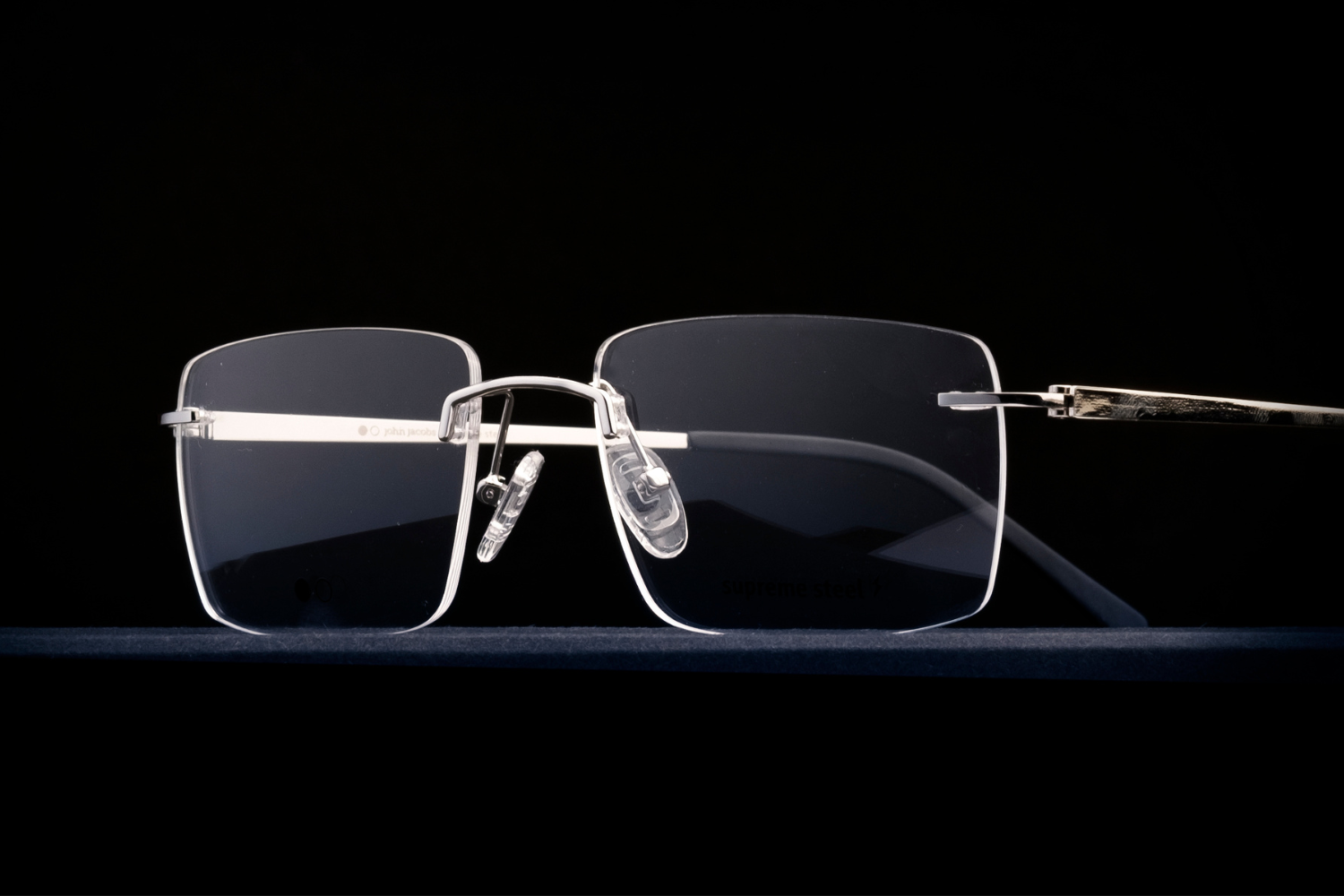KNOW OUR LENSES: GUIDE TO CRYSTAL-CLEAR VISION
Ever felt confused and overwhelmed by a topic you don’t know enough about? Eyewear shopping can feel just as daunting to a beginner. The biggest struggle is finding the right lens for your visual needs.
From anti-glare to photochromic, the variety of lenses stretches over the moon. We often get asked, “Which is the best lens?”. Well, the answer’s both simple, and equally complicated. The best lenses for any individual are the ones that best fit their needs: be it visual correction prescriptions, lifestyle requirements, style choices or the budget they’ve got.
If you find yourself stuck with more questions than answers about lenses, this read is for you. Here are expert-approved answers to your most-asked questions about lenses:
1. Difference between digital and UV light and what lenses do I need to prevent damage?

Digital light refers to the blue light that’s emitted off screens. 1/3rd of all the visible light is blue light. UV light consists of UVA rays & UVB rays emitted from the sun. They’re not part of the visible light spectrum. Both digital and UV light damage the eye.
Generally, darker lenses protect against glare by blocking parts of visible light. However, for digital light protection, you must opt for blue light glasses. For UV protection, opt for lenses that specifically provide that. All John Jacobs sunglasses come with 100% UV protection.
2. Are photochromic lenses good for the eyes?

Photochromic lenses turn darker when exposed to sunlight, providing additional UV protection. These lenses are suitable for people who have to wear glasses constantly and need light-adaptive vision. They’re simply more convenient and protective than regular lenses. Check out our DynaChromic lenses for seamless protection and clarity both indoors and outdoors.
3. Difference between anti-glare lenses, blue light lenses and zero power lenses? They all claim to prevent damage from digital light.

Anti-glare lenses do not provide protection against blue light. They simply reduce light reflection and glare, which helps provide a clearer vision. Blue light lenses are crafted specifically to protect your eyes from blue light emitted from led screens.
A lot of blue light and anti-glare glasses come with zero power, for people with a higher screen time. These lenses can be customised to suit your prescription, if any. You can also find lenses with all three functionalities.
4. Will my eyesight get worse if I don’t wear prescription glasses?

There’s no evidence to suggest that your eyesight can get worse without wearing glasses. Not wearing them can cause other uncomfortable symptoms like poor vision, headaches, etc.
In case you are experiencing discomfort while reading or working on a digital device, it is always advisable to get your eyes checked, to halt the progression of visual issues. Visit our stores to get your eyes examined by qualified experts free of charge, with no strings attached!
5. How often will I need new prescription glasses?

Experts suggest that you must get annual eye check-ups. Your prescription glasses may need a replacement only if they wear out or if your prescription changes.
6. How do I choose the right lens thickness?

Different lenses come with different thickness, depending on your prescription. You will then go on to pick a frame that’s compatible with your lens thickness. As a rule of thumb, you need to check if your eyes are centred within the lenses. If yes, voila, you’ve found your right fit. Additionally, our High Index Lenses offer lightweight wearability at higher powers.
7. Are glass lenses better than plastic lenses?

Both types of lenses have their own pros and cons. Glass lenses are scratch resistant and provide clear vision. They’re also sleeker than other lenses. Plastic lenses are less reflective, thus more comfortable on the eyes. They’re also lighter and provide more room for colour and frame customisations.
As for the disadvantages, glass lenses shatter or crack easily. They’re also heavier and do not pair well with half-rimmed or rimless frames.
Still have questions about lens and frame sizes? Read another guide for more clarity!
We hope you now feel more confident shopping for lenses. In case you have more questions, you can drop a comment below and we will address it right away. You can also visit our stores for instant and prompt assistance while shopping.



















Leave a comment